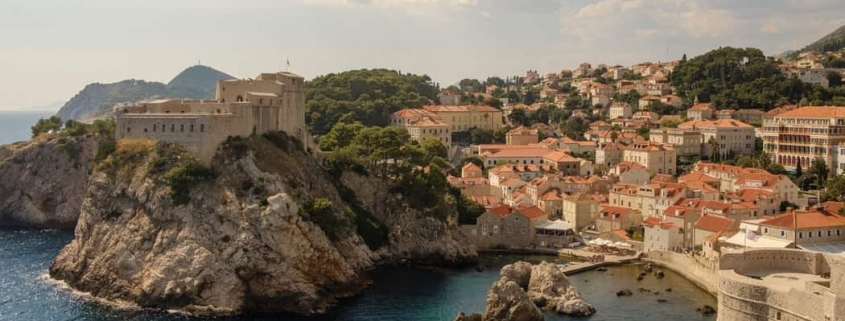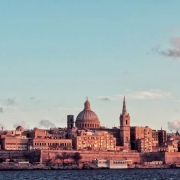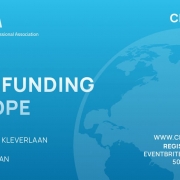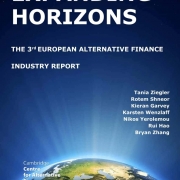Current State of Crowdfunding in Croatia 2016
An overview

Inhabitants: 4,2 million
GDP (ppp) per capita: $21.791
(Source: Wikipedia; Image Credit: NuclearVacuum)
From the Croatian perspective, crowdfunding is currently a big challenge. The greatest weaknesses are a small overall awareness of the possibility of crowdfunding, low use of Internet in online purchasing of goods, poor development and mistrust of e-business. But still, in Croatia there is a clear interest for crowdfunding. Every year there is a slow progress in the amount of campaigns backed, started or successfully produced and funded by Croatians.
Volumes
There are no data available for donation based crowdfunding.The first reward based crowdfunding campaign launched in 2011. The number of campaigns has increased in the following years, while the total collected yearly amount has doubled to €0,66 million in 2015.
Equity based; €370.000 has been raised so far.
P2P lending is under strict regulation that makes the whole procedure complicated and expensive.
Sources: for 2015 – Crowdfunding.hr/infografika-crowdfunding-u-hrvatskoj-2015-3376;
for 2014 – http://www.crowdfunding.hr/infografika-crowdfunding-u-hrvatskoj-2014-2906;
up to 2013 – http://www.crowdfunding.hr/infografika-crowdfunding-u-hrvatskoj-1975.
Local platforms
There are two Croatian crowdfunding platforms:
Croinvest: this platform combines five models of financing (donations, awards, loans, ownership participation and profit participation) customized to domestic law.
Croenergy, donation based crowdfunding platform exclusively for sustainable energy and environmental protection projects.
Currently there are no equity based crowdfunding or P2P lending platforms in Croatia.
Foreign platforms
The most important foreign platform is Indiegogo. On the US based platform 47 projects were launched in 2015. The second foreign crowdfunding platform operating in Croatia is Kickstarter. 8 projects started a reward-based crowdfunding campaign on the platform in 2015.
Regulations
There are no legal obstacles with regard to crowd donating and crowd sponsoring.
However, crowdlending is strict regulated by the law on capital markets. That makes the whole procedure complicated and expensive. Public authorities cannot use this model for any type of projects – this is the official standpoint of the Ministry of finance. The Croinvest.eu platform offers this possibility in a way that project lead may offer investor to loan funds in form of a interest-free or interest-bearing investment loan, which needs to be repaid in a defined amount of time. Multiple loans setup is also possible on different terms. This model resembles the standard loan agreement defined by Croatian laws.
Crowdinvesting is possible in form of investing in exchange for shares in private limited liability company, for stake in a cooperative or in an exchange for a “silent” (secret) partnership stake in the profit of the fund-seekers company. In the first case the equity share will correspond to proportion of investment in the company’s registered share capital. In the second case, no matter the size of the investment, all members of cooperative will have equal voting rights and will have to participate in its operation, gain profit through it or otherwise participate in achieving its goals. All of these three possibilities reflect on the current Croatian laws.
Crowdfunding Academy
Crowdfunding Academy is the first educational program on campaign production in Croatia co-developed and organised by UNDP Croatia and social enterprise Brodoto. Starting from 2015, Crowdfunding Academy has organised educational events and helped preparation and production of various crowdfunding projects. The Crowdfunding Academy team has mentored successful crowdfunding campaigns in Croatia and helped funding more than $100,000 for different social causes. The initiative is also the organiser of the first Zagreb Crowdfunding Convention. In the end of 2015, the Academy has reached a wider scope by creating a global educational program on crowdfunding and alternative financing for UNPD offices around the world.
Our Expert

“A great future predicted for crowdfunding gives us even a greater possibility for using it in making a positive social impact.”
The Current State of Crowdfunding in the Croatia is made possible by the contribution of Marina Petrovic and Kristina Lauš
With special thanks to Hrvoje Hafner
What’s the potential of crowdfunding in your country?
Every year we see a slow progress in the amount of campaigns backed, started or successfully produced and funded by Croatians. The number of supporters of local campaigns in 2015 rose to 7673 compared to 6636 from 2014. Domestic crowdfunding campaigns to this date raised nearly $ 1.5 million.
Last year 63 projects have been launched at different crowdfunding platforms, and only 23 of them collected the required amount. The conventional wisdom is that it is enough to launch a campaign and that success will come itself, which leads to often failures. (see also: http://www.crowdfunding.hr/infografika-crowdfunding-u-hrvatskoj-2015-3376)
In the previous years the biggest focus of Croatian crowdfunders was in the field of gaming, music and film, while in 2015 there has been a significant turn, with more than 10% of campaigns coming from the field of community causes. We believe that a significant role here was played by the Crowdfunding Academy, co-founded by the UNDP Croatia and social enterprise Brodoto.
What is the biggest challenge?
Crowdfunding definitely needs to be regulated but under its own legal framework that respects its specificities.
Basic crowdfunding projects are innovative, risky and experimental at its core – investors need protection but have to be aware of the true nature of these projects. It is necessary to allow public sector to enter the game and let citizens invest in projects within their own communities.
With special thanks to Hrvoje Hafner, his website www.crowdfunding.hr contains lots of data regarding the Croatian crowdfunding industry. We thank Bacic & Parners for their contribution too.
(Source: http://ec.europa.eu/eurostat/tgm/table.do?tab=table&init=1&language=en&pcode=tin00067&plugin=1)








